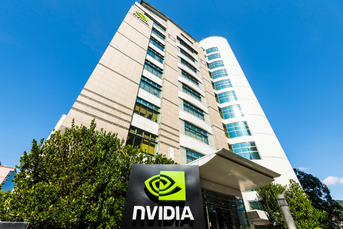Malkiel on investment opportunities, financial advice and robos
The author of 'A Random Walk Down Wall Street' talks about investing in today's world, the financial advice business and robos.
The author of “A Random Walk Down Wall Street” has walked all the way to Silicon Valley.
Burton Malkiel has been giving much the same investing advice for four decades: Keep fees low and don’t believe advisers and fund managers who promise to beat the market. Lately, he’s championed global diversification, and especially emerging market stocks. Lots of people have listened to the Princeton University professor — “A Random Walk” is on its 11th edition and has sold more than 1.5 million copies.
Now Mr. Malkiel, 82, is bringing his message to a younger crowd. He’s the chief investment officer of Wealthfront, one of the online investing start-ups trying to win millennial investors away from traditional brokers and advisers.
Making stock picks and market predictions still isn’t Mr. Malkiel’s style. But he has a lot to say about the future of the investing business, the risks that investors face today and where in the world they can find long-term opportunities.
We’re into the season of the “year ahead” predictions. How useful do you think those are?
There isn’t anybody who can tell you what’s the best asset class for 2015. Nobody. I’ve never known anybody who can time the market. I’ve never known anybody who knows anybody who can consistently time the market.
What’s the biggest source of risk for investors now?
Stock market valuations are high. And historically, when you have had yields this low, you have not had a particularly happy time for bondholders. Given valuations today, if there is some major negative shock, investors are not going to do well. Even if there is no negative shock, investors are going to have quite modest rates of return.
It does seem hard to find any attractively priced investments out there.
It’s very hard to see anything that’s cheap. There are some markets that are relatively more attractive than others. But, at least that I can see, there are no screaming bargains out there.
(More: An alternative oil investment that hinges on infrastructure needs)
In the United States, the municipal bond market is not cheap. But, on a relative basis, the tax-exempt market is a reasonable market for the investor who needs income.
Any other investments that could be attractive over the next 10 years?
Emerging market debt is risky, but it’s likely to have better rates of return. Mexican headlines have been upsetting. But the 10-year rate in Mexico is 6%.
When the U.S. is looking pretty good compared to the rest of the world, it can feel safe for American investors to stay close to home.
But the best way to reduce risk is to be very broadly diversified. And that means avoiding what’s called the “home country bias.” Valuations are better in emerging markets. Investors ought to look to [them for] reasonable rates of return.
Remember that a lot of companies are basically global, and selling all over the world. It matters less where they’re located. The German company Siemens [SIE] is global in the same sense that General Electric [GE] is global.
You’ve been in the industry now for four decades and seen all sorts of changes. How will the investing business be different in 10 years?
There isn’t much about investing that any of us can say we are 100% sure of. What I really am 100% sure of: The lower the fee that I pay to the purveyor of an investment product, the more there is going to be for me.
For that reason, I’ve always been a big fan of indexing. I’m an even stronger fan today than I was 40 years ago when I first wrote “Random Walk.” Essentially [index funds] allow you to buy the market at close to a zero — a 0.5% or 0.4% — expense ratio.
There are investment advisers who will charge you 1 or 2% a year. In today’s low-return environment, that’s going to eat up a significant part of your investment returns. The reason I’m so fond of Wealthfront, and signed on to that with great enthusiasm, is that we charge at most 25 basis points [0.25% per year]. And for that, we do broad diversification, rebalancing, tax-loss harvesting, and we use index funds and [exchange-traded funds]. This kind of low-cost advising is likely to gather more and more assets.
(More: Worries about robo-advisers are unfounded. Here’s why.)
What will be the role for human contact and human advice 10 years from now? Rich people will probably still have financial advisers. What about the rest of us?
I’m not saying that these online advisers are going to take over the whole world. Wealthfront’s main clients have been millennials, who are used to doing things online. Just as the Internet is taking over more and more retailing, there will still be a role for the store that gives you the human contact. I don’t think [traditional advice is] going to go away.
Another innovation in investing is target-date funds, used especially in 401(k)s as an all-in-one investment that adjusts stock and bond exposure as workers get closer to retirement. What do you think of these funds?
A lot of them are much too conservative and don’t have enough equities. They say a 65-year-old needs to have mainly a bond portfolio. But bonds are not likely to give you a decent rate of return. And we’re living longer — a 65-year-old probably has 20 years plus of life expectancy.
Do you think advisers need to teach their clients, or investors need to teach themselves, to be more resilient? Are we too focused on the short term?
Many people are. People put more of their money into equities when everything looks great. And they take their money out when everything looks terrible. To the extent that any investment advice is useful, it’s in preventing people from shooting themselves in the foot.
Learn more about reprints and licensing for this article.








